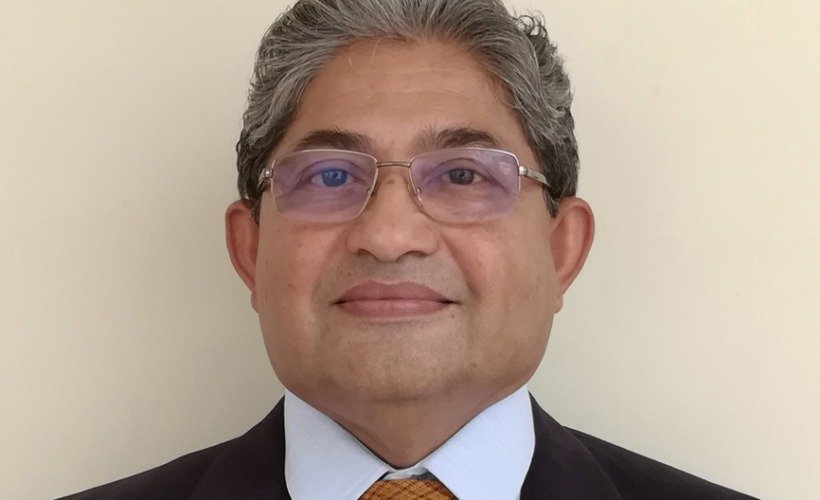
Daniel Albuquerque trains his focus on Indian Council of Arbitration (ICA) whose aim has been to be a mediator for trade and commerce related issues; and lays stress on conciliation and arbitration. However, the author’s analysis will illustrate that this institution has potential for more action
The arbitral tribunal shall make the award as expeditiously as possible, preferably within six months, from the date of the reference subject to a maximum limit of two years from the date on which the arbitral tribunal entered into reference in terms of Rule 38. The Arbitral Tribunal only in case of extreme necessity, may request the Registrar to extend the time to make the award and the Registrar may in consultation with the Chairman of the Arbitration Committee, extend such time for a period not exceeding one year, if such request is found to be reasonable and necessary – ICA Rule No. 63
Rule No. 38 concerns the role of the Registrar who is responsible to send all documents received from the parties to the Arbitration Tribunal that is duly formed under Rule No. 22 by the Chairman of the Arbitration Committee. In the event that the parties to the dispute fail to submit all the requisite documents, the Registrar may forward to the Arbitration Tribunal all that material available and the proceedings may commence.
The Case: This is a case where the Indian Council for Arbitration (ICA) itself is in the dock with an accusation that it has failed to follow its own rules. Narmada Clean-Tech filed a suit before the Gujarat High Court. A two-judge bench delivered its verdict on 19 August 2020 (C/LPA/308/2020. Earlier the appellant company had suffered a setback, where a single judge had dismissed the writ petition with the reasoning that it was not maintainable due to the order passed during the course of arbitration cannot be challenged under Articles 226 and 227 of the Constitution of India.
The Dispute: The origin of the dispute lay with a duly contracted deal with a contractor for laying pipeline and other related works. The contract had a clause for dispute settlement where the arbitrating agency would be the ICA. Sometime down the line there arose a dispute between the appellant company and its contractor. The ICA was approached which set up the tribunal and the dates for the proceedings. However, the appellant company did not attend the proceedings even after repeated appointments and postponements.
To the surprise of the ICA Tribunal, the appellant moved an application to cease proceedings under ICA Rule No. 63 citing the provisions of the Arbitration and Conciliation Act, 1996. All this happened after four meetings with the ICA Tribunal and the proceedings were not ceased. This was followed by an application by the appellant company for the recusal of the arbitrator. Irrespective of the order of the lower court that had rejected the appellant’s writ petition on the grounds already stated above that it is illegal to move to the court while the arbitral proceedings were still going on.
The Judgment: The High Court Bench of two judges, one of whom was its Chief Justice, deliberated diligently, applied its mind through various precedents which showed that there was no instance where court proceedings were conducted amidst the ongoing arbitral proceedings. The court also noted the binding nature of the arbitral order under the law. Accordingly, the court declared that there was no error in the order of the arbitral order of the lower court or any failure in the ICA Tribunal’s proceedings. Further, it said: “We accordingly dismiss this Letters Patent Appeal and request the Arbitral Tribunal to proceed with the matter and deliver the award after affording due opportunity of hearing at the earliest so that there is no violation to the limitation provided under the ICA Rules. Consequently, the connected Civil Application also stands disposed of.”
Analysis: The above case demonstrates two elements: a) the stubborn attitude of the Narmada Clean Tech vis-à-vis the accommodative attitude of the Arbitration Tribunal; b) vitiation of the very purpose for which an agency of arbitration exists, namely to settle commercial disputes efficiently, quickly and amicably.
Further it demonstrates that somewhere down in its history since 1965 the ICA has lacked the initiative to convince its clients about its own motto adopted from none other than the greatest arbitrator of the world, Mahatma Gandhi himself: I realized the true function of a lawyer was to unite parties riven as under. The lesson was so indelibly burnt into me that a large part of my time during the twenty years of my practice as a lawyer was occupied in bringing about private compromises of hundreds of cases. I lost nothing thereby –not even money, certainly not my soul (See its website, http://www.icaindia.co.in). It is a very large organization: Member Corporations 5000, cases administered 2000, International Cooperation Agreements 46, Expert Arbitrators 2000, and Branches in India 8.
The question is why the arbitral parties finally end up taking recourse to the courts? The answer is not very far to seek. As stated above the ICA is governed by Arbitration and Conciliation Act, 1996, which again is amended several times. It is also answerable to several ministries such as that of Law, Commerce and Industry, Finance, Secretary to the Government of India and also to the Departments of Expenditure, etc. In the final analysis it ends up as another government agency. Hence the migration from ICA to a court of law is a compelling necessity.
Consequently, those companies desirous of an acceptable and completely independent arbitrator move to arbitration councils in Singapore or England and Wales because their systems have adopted International Commercial Court’s (ICC) rules which are stable and its rulings are always binding internationally. Its recent rulings concerning Vodafone and Cairns, both concerning retrospective taxation, are an example why companies prefer ICC. The ICA on the other hand is ad hoc in nature. Its rules are based on United Nations Commission on International Trade Law (UNCITRAL) Arbitration Rules where room is made for compromises and concessions, etc.
Conclusion: India lags behind woefully in the ease-of-doing business. To remedy this malady, India’s policy making agency, NITI Aayog organised a ‘Global Conference on National Initiative towards Strengthening Arbitration and Enforcement in India’ in November, 2016. At that time India was ranked 130 among 190 countries in the world for ease-of-doing business. Addressing the conference Prime Minister Narendra Modi had proposed for ‘a robust legal system with a vibrant arbitration culture’ as of vital importance. The conference deliberated on the overloaded judiciary with litigation. The conference resolved to create a conducive environment to create a stable Alternative Dispute Resolution (ADR). Elimination of ad hochism and adoption of a stable and trustworthy system was stressed. Steadily India’s standing has improved to 63 but it is nowhere close to its 5th position in the rank of top world economies.
However, various governmental controls remain still unchanged. With a little more of ease of doing business it could have been just behind the top two economies that is the United States of America (USA) and China. Remedy lies in making the ICA an autonomous institution.
The columnist is a writer with Oxford University Press and a published author. Email: albuquerque.daniel@gmail.com





